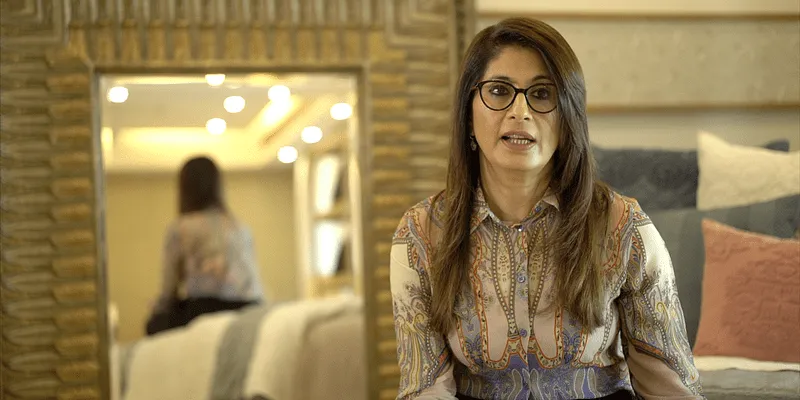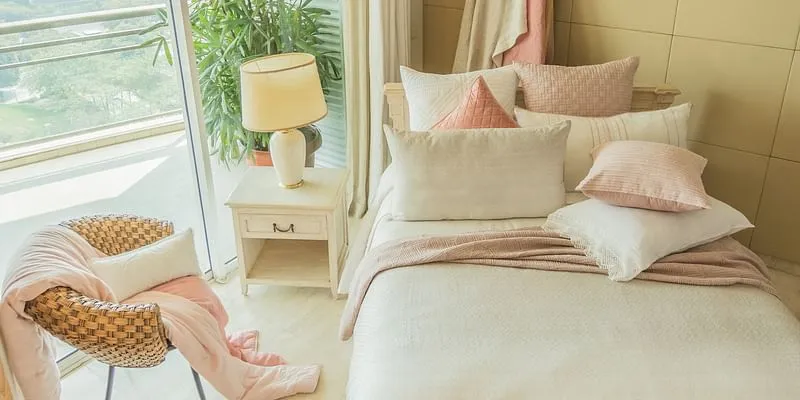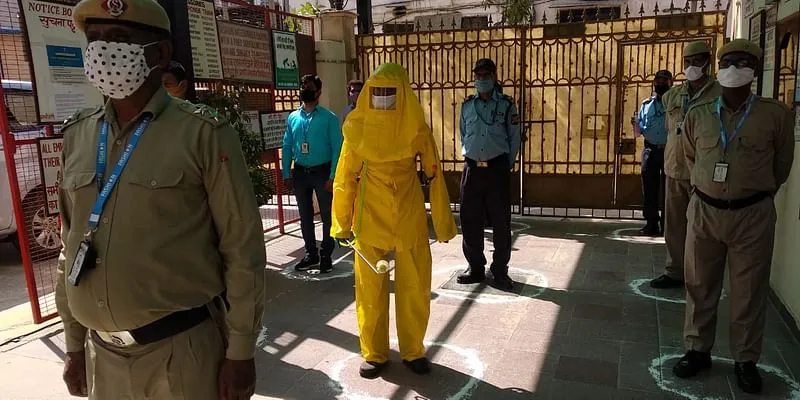This homemaker turned entrepreneur launched a textile brand that clocks Rs 290 Cr turnover
FA Home was founded by Chandrika Thatai in 2000. The 20-year-old textile company manufactures and exports home textile products and fashion accessories to the US, the UK, and other European markets.
Time and again, women have proven that if given a platform to display their potential and capabilities, they can even surpass men.
The story of Chandrika Thatai is one such example. Belonging to a family of doctors who then got married to an entrepreneur, and started her own venture, Chandrika’s story can give mental and spiritual impetus to a lot of women entrepreneurs struggling with concerns of setting up a business, managing cash flows, and surviving business shocks and calamities. One thing that has been a constant in Chandrika’s life is her fierce determination.

She founded Fashion Accessories (FA) Home in 2000. The Gurugram-based company manufactures and exports home textile products such as drapes, decorative cushions, bedsheets, quilts, Christmas accessories, table linen, etc., along with fashion accessories such as belts and bags to the US, the UK, and the European markets. However, it is not selling in India currently.
Speaking to SMBStory, she says that her business today clocks a turnover of Rs 290 crore annually.
Edited excerpts from the interview:
SMBStory [SMBS]: You belong to an affluent family of doctors. How did you get into entrepreneurship?
Chandrika Thatai [CT]: I come from a family of doctors which is considered a very noble profession. Incidentally, I got married to an entrepreneur, Anoop Thatai, who was into textiles.
I always had a passion for creating something new and exploring things that have not been ventured into before. Gradually, I found the textile industry intriguing, and that’s when I started accompanying my husband to mills and other places he went for work, which gave me an insight into the industry. That’s how I developed an interest in textiles and entrepreneurship.
I also did a short-term course from the National Institute of Fashion Technology (NIFT), Delhi, while parenting two children at home. I founded FA Home in 2000 with a friend of mine in whose garage we set up our operations.
I also knew that if I had to pursue anything, it would have to be in textiles, as I didn’t have any infrastructure.
SMBS: How were the initial years after setting up the business?
CT: The friend with whom I set up the business had to leave for personal reasons. That was overwhelming, but I was determined to carry on the business which I had started with my pocket money of Rs 25,000, and had put in so much hard work.
I failed at all sorts of challenges – cash flow constraints, infrastructure, etc. Having inadequate experience in gathering raw materials and other resources, clients were hesitant in trusting our business. I didn’t want to take a lot of money from my husband, and wanted to achieve everything on the dint of my hard work.
Looking back now, I realise that I had only two options – either going back to being a home-maker, or move forward. I chose the latter.
I struggled for the first few years, but when my orders started shipping to the UK market and around, and I earned a profit. I became more confident, and this also gave confidence to my husband.
SMBS: Do you think women have to struggle more in the ecosystem because of their gender?
CT: We may say that a new era is coming where women will have greater and equal opportunities, but gender discrimination still exists. It is getting better now, but we still face a lot of biases.
But all the struggles I faced as a woman has helped me work towards women empowerment and emancipation in my own organisation.

SMBS: What gaps did you identify in the US, the UK, and the European markets that inspired you to get into the luxury fashion accessories segment, which otherwise is a much-tapped market?
CT: I saw the niche market was missing for luxury bags, accessories, and apparel. I wanted to bring in some newness into my products, including doing things like adding some textures. I have created everything on my own, which means I have not just copy-pasted ideas but taken inspiration from different places and formulated them into concrete ideas translating into designs. When they sold so well, I realised that I had done something different.
Moreover, initially, I did not have any infrastructure expenses. So I made sure that my products were cost-effective. My husband also helped with a lot of inputs.
SMBS: How important it is to build and maintain relationships in business – whether they are your clients, vendors, or any other stakeholder?
CT: I used to travel a lot with my husband which helped me build good relationships. I believe that you cannot achieve anything without building relationships – whether it is something in the personal sphere of your life, or related to business.
I remember once when I was selling my bags and accessories, somebody told me, “I have put a lot of effort for you. Don’t fail me!” This really drove me to give my best and live up to the expectations of this person. It gave me sleepless nights because I knew I had to expand my life, my potential, and go beyond my boundaries to ensure I don’t let this person down.
It is important to work very hard, be passionate, and stay focussed on your goals.

SMBS: What were the disruptions you faced in the wake of the coronavirus pandemic?
CT: Shutting down the factories and halting our shipments severely affected the financial health of our company. For two months, we couldn’t sell anything, and I foresee my business experiencing a hit of 40 percent.
Working closely with our stakeholders has helped us a lot. Our customers understand our situation, and in our organisation we are communicating to everyone in a way that we don’t lose people but remain strong together. I am also expecting some great incentives to come from the Indian government, which can help our workers.
SMBS: As a 20-year-old business, you have survived several global crises such as the financial global crisis in 2007-08, demonetisation, and now, the COVID-19 pandemic. How have you been able to overcome these business shocks?
CT: The year 2008 was a very bad year for us. We faced some problems during the demonetisation, but not much. But COVID-19 has been the worst, and we all have to fight it together. The current times will be a lot about the survival of the fittest.
I believe, having a reserve in the organisation and managing our finances well, has helped us, thanks to my husband’s background in finance.
Currently, we are just figuring out how to survive, but a lot of support needs to come from the government for the textile industry, in general.
Edited by Suman Singh










